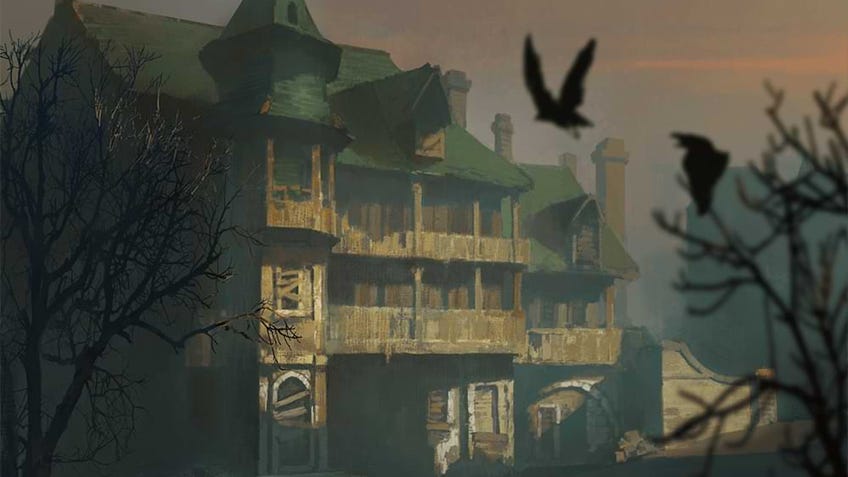One D&D's Bastion minigame has loads of potential for long-term 5E fans – but not everyone will play it
Finally, an adventurer flatshare.
Dungeons & Dragons players, have you ever fancied having a wizard’s tower of your own? Or a fortress where your fighter can make their own armour, maybe boss a few employees around? Well, in the latest One D&D playtest, the designers at Wizards of the Coast have offered just that, with a new ‘Bastion’ system to drop into your games and campaigns.
Bastions are effectively strongholds for your party, unlockable from Level 5 onwards, once you’ve earned a little renown, maybe a little gold, and can be trusted with a little real estate management. A Bastion functions as a base of operations for you to sit, relax or strategise between adventures, with a host of facilities that give you boosts for certain kinds of activities or even passive income.
As currently designed, any Level 5 player can have their own Bastion, though it’s also possible to combine disparate facilities into a single building, if you’d rather have a party headquarters or Mojo Dojo Casa House to keep the group together.
Basic facilities are things like sleeping quarters, kitchens, and storage for your adventuring loot – while Special facilities could include an Armory, Garden, or Observatory, each with their own benefits and capabilities even if you’re not personally there to use them. A Library, for instance, lets you get a hireling to do some research for you, meaning you can go hunt down a mob boss or runaway Basilisk while your servant pulls an all-nighter on some dusty books.
The real mechanical benefit of Bastions is how they grant you access to abilities your party might not usually have.
It’s an intriguing concept – even if the idea of being a fantasy landlord may not appeal to those playing D&D as a band of underdog heroes. (Owning property? In this economy?)
The real mechanical benefit of Bastions is how they grant you access to abilities your party might not usually have. Both the Pub and Meditation Chamber (unlocked at Level 13) can provide you with temporary boons, from a cocktail that gives you a 24-hour Spider Climb ability, to weeklong boosts to saving throws.

At higher levels, there are even mechanics for inviting Mages and Archmages, who can then cast Wizard spells for you – very handy if you don’t have one in the party and need to cast Scrying on a captured ally – while the Level 17 War Room allows you to gather potentially hundreds of soldiers to ride with you into battle.
There’s a tower defence element here too. Technically your Bastion can be sieged, and its defensive capabilities depend on how much you invested in guards for your stronghold, and what facilities or fences you decided to build. Certain facilities, like the Armory or Barracks, are specifically designed to boost your chances of pushing off attackers without too much hassle – and there are a host of random encounter tables to help the DM decide what happens to your Bastion and when. You might be besieged by local bandits, visited by well-meaning strangers who need use of your facilities, or have bounty hunters come looking for a specific hireling in your employ.
The issue is that so many players are never going to experience it.
There’s obviously a huge amount of narrative potential – a stronghold gifted to you, bought, or built with newfound gold, that can draw the attention, adoration, or ill will of surrounding inhabitants. For anyone who likes micromanagement or fortress-building, there’s plenty here to get your teeth into, while it’s also possible to have a more hands-off approach, with occasional orders sent back to the Bastion to make a new magic item or outsource some research while you’re off being a hero.
The issue? So many players are never going to experience it.
Bastions require some significant narrative investment over time - each Bastion ‘order’ takes place over the duration of a week. Any fast-paced dungeon crawls, one-off games or time-constrained stories will never be able to accommodate Bastion mechanics into their stories. It’s really only of benefit to long-form campaigns, where you can get significant usage out of a Bastion over time – but even then, given how slowly in-game time can pass and how fast a plot can move, it might be months of real-world time for a regular D&D group before they get through a single Bastion order.
This will obviously vary between tables, with some stories having more recourse for significant downtime between adventures. If your party undergoes some inadvertent time travel by journeying to the Feywild, maybe you’ll accidentally jump ahead several weeks and find your Bastion has been very busy in the interim. Yet for such an intricate, ambitious system – with almost 30 distinct facilities for players to consider building and using – it’s just a shame that many players will likely only scratch the surface of it, if they encounter it at all.
Bastions are another very good argument for trying out higher tiers of play.
On the other hand, it’s reassuring to see D&D implement a system that makes a case for more high-level adventuring, and really establishes a party as a team growing in renown and influence as time goes on. If you weren’t sure about pushing your campaign to Level 20, Bastions are another very good argument for trying out higher tiers of play.
Just be sure to check out the Acquisitions Incorporated sourcebook in tandem – it has some great ideas for moving, flying or teleporting headquarters that the Bastion system hasn’t touched on yet (with a little more worker solidarity than this property-owner sim).


